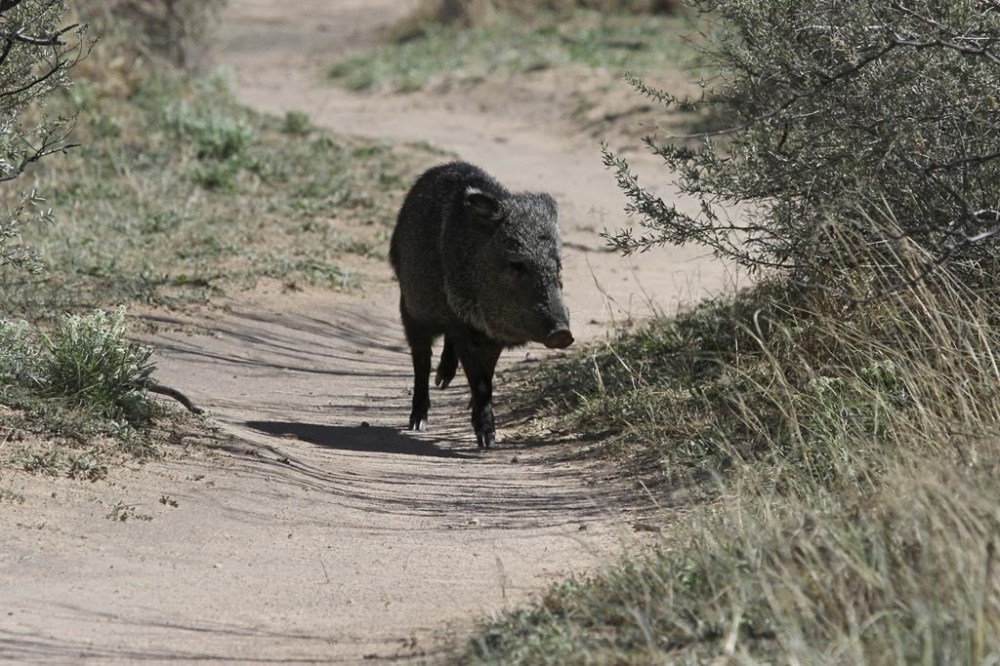A warmer than usual summer blamed for hungry, hungry javelinas ripping through Arizona golf course
Advertisement
Read this article for free:
or
Already have an account? Log in here »
To continue reading, please subscribe:
Monthly Digital Subscription
$0 for the first 4 weeks*
- Enjoy unlimited reading on winnipegfreepress.com
- Read the E-Edition, our digital replica newspaper
- Access News Break, our award-winning app
- Play interactive puzzles
*No charge for 4 weeks then price increases to the regular rate of $19.00 plus GST every four weeks. Offer available to new and qualified returning subscribers only. Cancel any time.
Monthly Digital Subscription
$4.75/week*
- Enjoy unlimited reading on winnipegfreepress.com
- Read the E-Edition, our digital replica newspaper
- Access News Break, our award-winning app
- Play interactive puzzles
*Billed as $19 plus GST every four weeks. Cancel any time.
To continue reading, please subscribe:
Add Free Press access to your Brandon Sun subscription for only an additional
$1 for the first 4 weeks*
*Your next subscription payment will increase by $1.00 and you will be charged $16.99 plus GST for four weeks. After four weeks, your payment will increase to $23.99 plus GST every four weeks.
Read unlimited articles for free today:
or
Already have an account? Log in here »
Hey there, time traveller!
This article was published 25/10/2023 (751 days ago), so information in it may no longer be current.
SEDONA, Ariz. (AP) — Operators of a northern Arizona golf course think they have finally found the right repellent for javelinas ripping apart their turf — chili oil.
“Even though they’re Southwest animals, they don’t like Southwest seasoning,” Dave Bisbee, general manager at Seven Canyons Golf Club in Sedona, said Tuesday.
This is not the first autumn the golf course has been targeted by foraging javelinas. Bisbee said it’s occurred several times over the years, but the amount of damage he saw is rare.

The hotter than normal summer felt in various regions of Arizona is likely what has driven the pig-like peccary to take big bites out of the golf course. The Sedona area saw less than 2 inches (5 centimeters) of rain this whole summer. Last year, the golf course was drenched with 18 inches (46 centimeters) of rain over the course of the summer storm season, also known as monsoon season, Bisbee recalled.
“We had zero damage,” he said.
The tearing of turf started happening six weeks ago. In total, the animals have hit about eight different spots from all sides.
The club has been working with the Arizona Game & Fish Department to “figure out a way to co-exist with them.” A herd of javelinas, also called a squadron, is typically made up of six to nine, according to the National Park Service.
Bisbee said he was told by wildlife officials the golf course has anywhere from 30 to 50 squadrons.
He knows of other golf courses in the state that have had similar issues. But theirs is the only one to draw enormous attention on social media.
Emily Casey, assistant superintendent, posted cellphone video over the weekend showing divot after divot. The video has been viewed more than 25 million times.
A similar situation happened five years ago after a particularly hot, dry summer, Bisbee recalled. That time, the club tried granules of coyote urine. That made things worse.
“It was like putting bacon bits in their salad,” he said.
For now, chili oil seems to be the most effective. The golf club, which has a restaurant, has been working with suppliers to get a concentrate to make a spray. They think it will help until the temperatures cool down next week, which should prompt javelinas to look elsewhere.
“We’re still trying to figure out the right formulation in the chili oil we put out. It’s a delicate thing for the grass,” Bisbee said. “It’s a continuing dance we do.”

